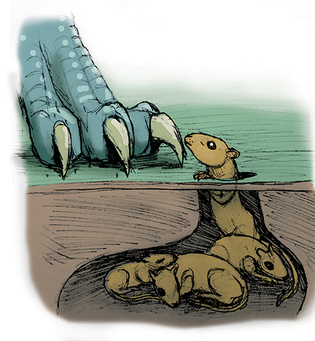
Gregory Nemec
A cluster of newly discovered fossils shows that social behaviors go way back in the mammalian family tree. Scientists long thought mammalian sociality evolved after the Cretaceous-Paleogene mass extinction that eradicated most dinosaurs about 66 million years ago. But preserved remains of a small mammal, Filikomys primaevus, have revealed multiple adults nesting together—strongly suggesting social behavior as early as the Late Cretaceous Period, when dinosaurs still dominated. The study was coauthored by Yale Professor of Anthropology Eric Sargis.
Anorexia often kills. Now, researchers have identified a neuron that may play a role in whether anorexia becomes deadly. A team led by Tamas Horvath, chair of the Department of Comparative Medicine, investigated the neuron AgRP, which is active during food restriction. AgRP helps the body access alternative forms of fuel—namely fat—while food restriction is combined with intense exercise. But AgRP’s level of activity may vary. When researchers inhibited AgRP in mice that exercised and had little food, the animals’ mortality rate vastly increased. However, when researchers provided fatty food to the mice with decreased AgRP activity, all the mice survived.
Recycling conserves resources. But if we also want it to decrease global warming, it has to be done right. A team from Yale and University College London modeled conditions for increasing wastepaper recycling by 2050 and analyzed the impact on greenhouse gas emissions. Results showed that, if all wastepaper were recycled, emissions could increase by 10 percent. Recycling—which is still dependent on polluting fuels—lags behind the progress that manufacturers of new paper have achieved.
 loading
loading